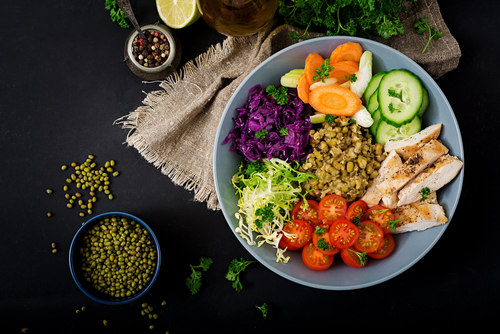
A recent headline claimed that scientists have proved that probiotics are “next to useless.” So are probiotics useless? I but some myths and show you how to improve the health of your gut.
What’s all the fuss about?
Probiotics are preparations containing live bacteria, which could improve our gut microbiome and so benefit our health. Our gut microbiome is the unique mix of bacteria, viruses, protozoa, and other bugs inside our intestines. Scientists think that our gut microbiome is responsible for our risk of developing numerous diseases. For example irritable bowel syndrome, inflammatory bowel disease, type 2 diabetes, obesity, rheumatoid arthritis, depression, and autism. Much more research is needed but what we do know is that the presence of specific bacteria in our gut and a more diverse gut microbiome is associated with better immunity and less inflammation. This might reduce our risk of disease and improve our mental health. So do probiotics improve our gut microbiome? If not what should we do to have a healthy gut?
Four specific challenges.
- Probiotics are not subject to the same rigorous regulation as medicine and so they may not contain what they say they contain.
- Much of the research that has been done to look at the benefits of probiotics has not been done to a high enough standard to show cause and effect.
- There are numerous different types of probiotic preparation. Where we do have high quality research it shows that specific preparations known to contain specific bacteria are beneficial for specific conditions. So a probiotic that has been shown to reduce the duration of colds in children may not be useful for inflammatory bowel disease. Taking a random probiotic that you find at the supermarket or health food store may not help reduce the duration of your child’s cold.
- Everyone’s gut mcrobiome is different anyway. If you have a healthier gut at the outset the impact of a probiotic will be different when compared to someone with a less healthy gut.
What should you do?
Your Dietitian will be able to advise you with your specific needs. In the meantime a few common examples are:
- For bacterial vaginosis and vulvovaginal candidiasis: Try Ultra Flora Women’s 2 capsules/day and Pro-B Probiotic Feminine Supplement 1 capsule/day
- To reduce the duration of common infectious diseases such as colds: Try Actimel 1-2 servings/day
- To improve childhood eczema and atopic dermatitis: Try Aller-aid 2 capsules/day, Bio Gaia Protectis 5 drops or 1 tablet/day and Culterelle kids chewables 1-2 tablets/day
Some people should not take probiotics so it’s important to ask your GP or dietitian first. We can all improve the health of our gut by eating a high fibre diet with as many different plant foods as possible. There is no need to go vegan or vegetarian – that’s a lifestyle choice not a health choice. However we should all be having a more plant-based diet.
How does your dinner compare to this picture?

Make a tally mark on your phone every time you have a different plant food. Count how many different types of plant you have had at the end of the week. We should be aiming for about 30 different types of plant per week. Take the challenge and let me know how you get on.
If you would like personalised advise on improving your gut health or helping your kids have a healthy gut click the link below.

